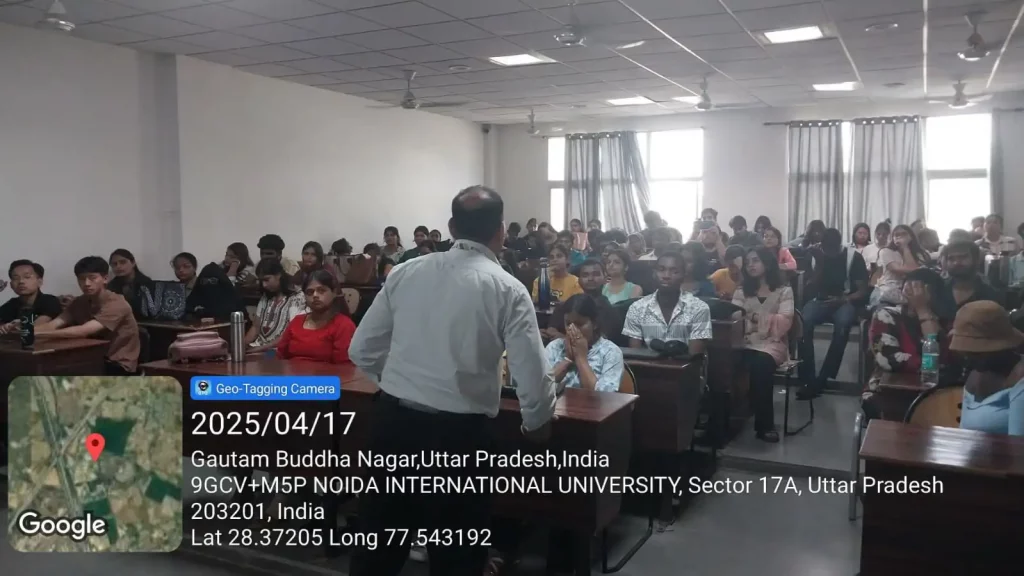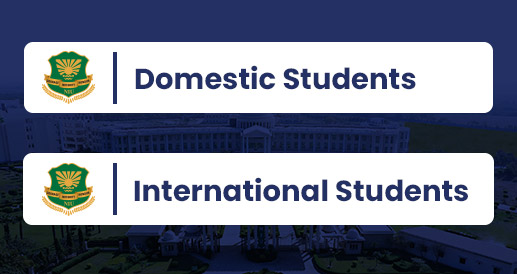Academic Session: – 2024-2025 (Even Semester)
Date: 17th April 2025
Mode of Activity: Offline
Venue: Academic block
Timing: 1:45 P.M. – 4:15 P.M.
Target Group: B.A. (H) [All Department]
Event/Activity Coordinator/ Coordinators: Dr. Nancy Puri & Dr. Shruti Nagar
Organized by: School of Liberal Arts
Introduction:
International Relations (IR) as an optional subject is gaining a lot of attention among UPSC aspirants due to its relevance in today’s interconnected global world. The subject focuses on how countries interact, how global institutions function, and how international events impact domestic governance. These themes are deeply tied to the responsibilities of civil servants, especially those involved in policymaking, diplomacy, or international cooperation. During the session, organized by the Civil Services Cell, School of Liberal Arts, got a deep insight into how International Relations helps in understanding current affairs, world politics, and India’s role on the global stage—all of which are important in the UPSC syllabus. One of the main advantages of IR as an optional subject is that a large portion of its content overlaps with GS Paper II and current affairs, making preparation more integrated. The session also helped us realise that students from both humanities and non-humanities backgrounds can take up IR, as it is analytical and doesn’t require rote learning. The lecture not only explained how IR helps in the written exam but also how it enhances one’s personality and understanding for the interview stage.
Aims/Objectives:
The aim of the civil services cell was to make students:
- Understand the importance of International Relations in civil services preparation.
- Explore how IR as an optional paper can help in GS and essay paper.
- Develop a global perspective necessary for future administrators.
- Learn how IR helps in current affairs analysis and interview preparation.
- Motivate students to consider IR as an interdisciplinary and scoring optional subject.
- Create awareness about India’s foreign policy and global standing.
Content:
On 17th April 2025, the Civil Services Cell of the School of Liberal Arts organized a session on “How International Relations as an Optional Subject can be useful in UPSC”. The lecture was delivered by Prof. (Dr.) Qaisar Alam, a renowned scholar in the field of International Politics and Global Governance. The session was attended by undergraduate students of Political Science and aspirants interested in civil services.
Prof. Qaisar Alam began by explaining the structure of the IR optional paper in UPSC and its overlap with General Studies papers, especially GS Paper II (Governance, International Relations, and Indian Polity). He explained that IR is not just about reading theories—it is about understanding how India deals with the world, responds to global challenges, and balances its national interests. He shared how aspirants who choose IR develop better analytical and writing skills, which are extremely useful in essay writing and Mains examination. What stood out to during the lecture session was his example of India’s foreign policy decisions in the context of global events like the Russia-Ukraine conflict, India-China border tensions, and the role of India in the UN. He explained these real-world scenarios using IR theories, making it easier for us to relate textbook knowledge with current affairs. He also highlighted that IR teaches aspirants to develop a rational and objective outlook, which is important for civil servants. The Q&A session was interactive and enlightening. Students asked questions about booklists, strategies for note-making, and whether non-IR background students can take the subject. Dr. Alam patiently answered every query, assuring us that with interest and consistent reading, anyone can do well in this optional.
Outcome:
The session was very insightful and changed the way many of us looked at optional paper selection. It made us realise that International Relations is not just a subject—it’s a skill that a civil servant needs in today’s globalised administration. Students became more aware of how IR is relevant not only to the exam syllabus but also to actual governance, diplomacy, and policy decisions. Another key takeaway was the encouragement we got from Dr. Alam’s words—how IR helps build a personality that is calm, analytical, and sensitive to global changes. The clarity he gave regarding answer writing and topic prioritisation was very useful for many of us who were confused about which optional to pick. The session helped students appreciate the practical value of IR in UPSC preparation. Some students even expressed their interest in pursuing IR further for higher studies or appearing for IFS (Indian Foreign Service). Overall, it was a motivating and intellectually enriching experience.
Conclusion:
The session with Prof. (Dr). Qaisar Alam was both inspiring and informative. It gave us a fresh and practical perspective on how International Relations can be a powerful optional paper for UPSC aspirants. His deep understanding of the subject, combined with real-life examples and strategic advice, made the session extremely engaging. By the end of the lecture, most of us realised that IR is not limited to theories or foreign policy—it shapes the way we think about global justice, cooperation, diplomacy, and India’s role in the world. It showed us how the subject could help us become informed, responsible, and globally aware civil servants. In conclusion, the lecture was a great blend of knowledge, personal growth, and administrative insight, and it surely sparked a new interest in many of us to explore IR in greater depth.



